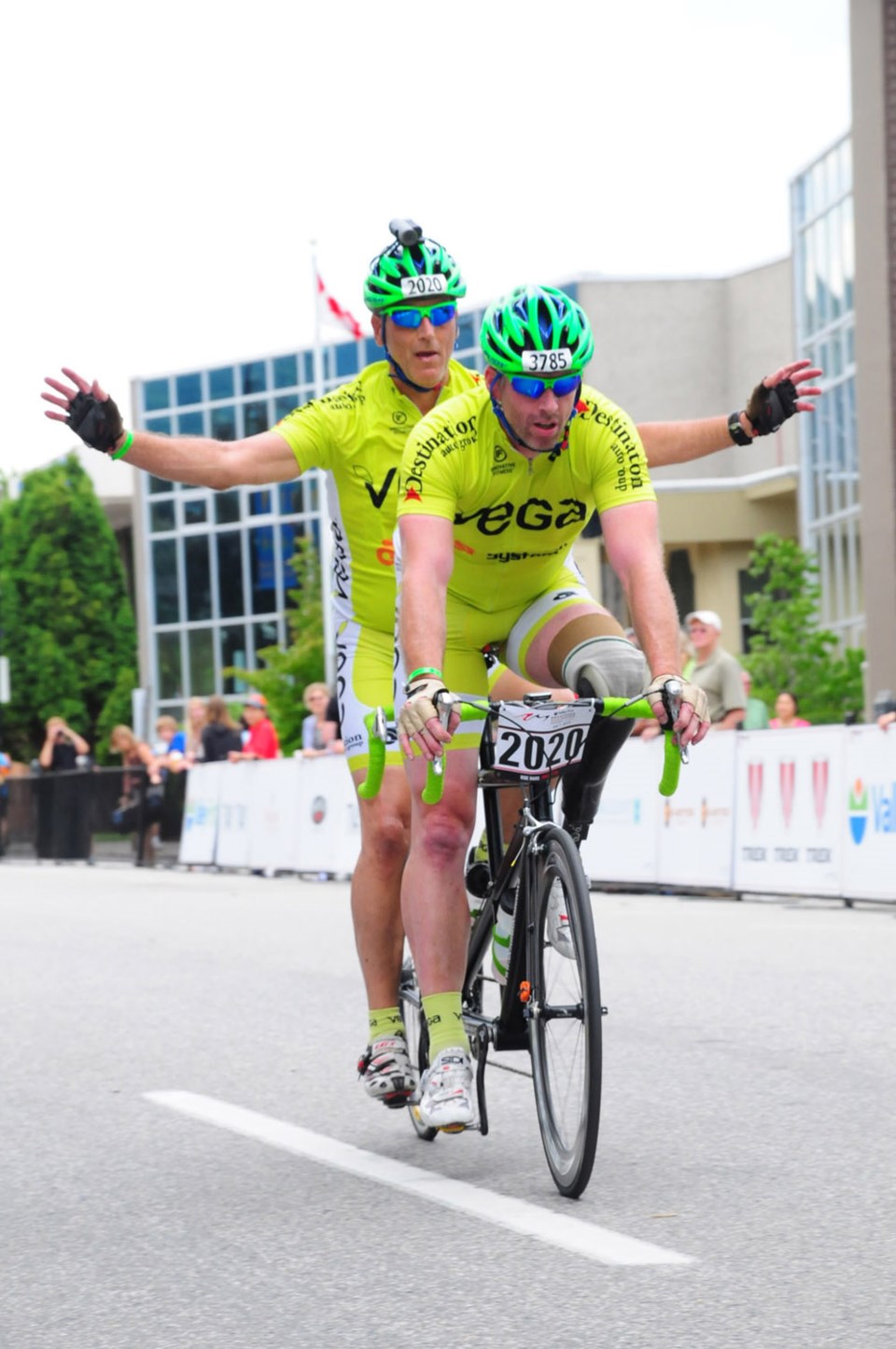The world's only double paratriathlon team is hoping to smooth the way for others with physical difficulties to get into the sport. Visually impaired Brian Cowie of Burnaby and Meyrick Jones, a 39-yearold below-the-knee amputee from West Vancouver, completed the 226-kilometre Ironman Canada triathlon together in Whistler last month.
It won't be their last, and hopefully it will become a harbinger for better days ahead for other physically challenged triathletes.
The pair competed together in their first Ironman in 2010 and are now looking forward to Rio de Janerio, where triathlon will become a medal sport at the Paralympic Games in 2016.
For the 61-year-old Cowie, it was his 15th career Ironman finish and approximately 100th triathlon. Up until meeting his disabled partner, Cowie was always teamed with a sighted pilot.
He began doing triathlons in 1988 before getting into tandem cycling in a big way, earning a silver medal for Canada at the world championships in road racing and later a bronze on the track in Manchester, England in 2009.
But finding longtime partners had its shortcomings, and the financial barriers for para-athletes, were, and still are, large burdens for disadvantaged athletes.
"We just know how hard it is to get to where these people want to be. We want to make the road a little easier," said Cowie. "We started competing for fun, but we were surprised by how much attention our story was getting. We asked ourselves, 'How can we turn this attention into something bigger and help someone along the way?'"
The two came up with the Paraproject, which is a joint partnership with Triathlon Canada, with the object of removing financial barriers to competition experienced by Canada's disabled triathlon athletes.
Every penny raised through the Paraproject will go to Triathlon Canada's paratriathlon program, where it will be used to help fund aspiring disabled athletes.
He and Jones are serious about their Paralympic aspirations.
"We're more about being out there and visible, giving people something to think about," Cowie said, adding that words like, "inspiring, awesome" and "you guys rock" often come up in the conversation.
"It's humbling and overwhelming that people would stop and tell you what a difference you are making. You don't expect it," he said.
But on a deeper level, Cowie and Jones understood how their actions inspire and influence those around them.
"It's beginning to make a difference," Cowie said, adding the reason the two strive to give
back goes to the core of what is fundamentally good in life.
"It's like that hug you got when you were a little kid and how it made you feel better," he said. "It's corny, but it's really what the bottom line is. We do inspire people, we do motivate people, and if we do this two or three times, it gets people to think what they've done is a success."
Getting an email from a someone in reply to how he had helped him through a rough time is the motivation that keeps him going, Cowie said.
"That's the payment, that return email that says, 'I think I can deal with that now.'" To donate to the Paraproject, go to http://paraproject.com/wp.



